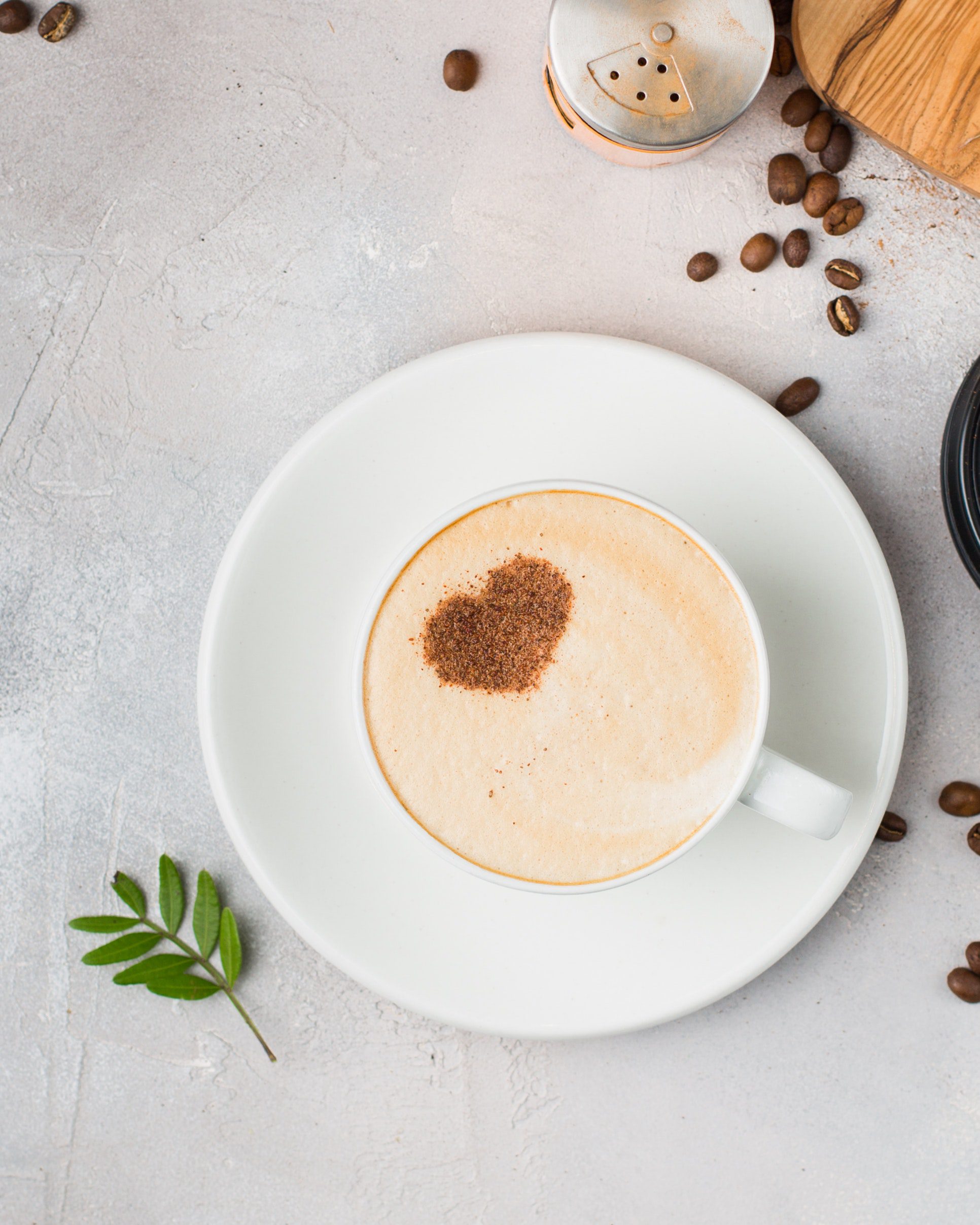Made from humble beans and water, coffee is one daily indulgence most people can’t live without. Over 150 million Americans over the age of 18 drink coffee every single day – with the average American drinking more than one cup daily.
But whilst coffee does have some benefits (more on this below), consuming too much of it on a regular basis can impact upon our overall wellbeing.
What’s the deal with coffee?
Coffee itself is not inherently ‘unhealthy’. In fact, coffee has a variety of benefits for body and mind aside boosted energy levels – including metabolic support, improves mood and increases levels of focus and alertness. Most of these benefits come from its high caffeine content.
The problem with coffee starts with overconsumption and dependence. Unless you’re struggling with adrenal fatigue, anxiety or heart issues, the odd cup of good quality coffee as a treat is absolutely fine. But as the statistics show, many people feel they need a cup of coffee to feel awake and alert in the morning – it’s the first thing they reach for when they start their day. On top of this, many people grab a coffee whenever their energy levels dip throughout the day – depending on it as their source of sustenance to keep mentally and physically alert whether at work, when taking care of family or at the gym.
 Side effects associated with drinking too much coffee on a daily basis include:
Side effects associated with drinking too much coffee on a daily basis include:
Frequent energy highs and lows: Caffeine causes our energy levels to artificially peak and dip throughout the day, impacting upon other systems in the body and disrupting appetite and
Increased anxiety: Some people who drink coffee report higher anxiety levels which can be accompanied by jitters and heart palpitations. If you regularly over-consume coffee but don’t experience acute symptoms of anxiety, you may have higher anxiety and stress levels without realising.
Poor sleep quality: People who drink coffee throughout the day may have trouble getting to sleep, and staying asleep. Caffeine is a stimulant which can stay in your system for over 12 hours, so drinking too much later on in the day can severely impact upon sleep quality and contribute to insomnia.
Dehydration: Coffee is a diuretic, so it has a dehydrating effect on the body. No matter how much coffee you consume, be sure to at least match it with the same amount of filtered water to help maintain healthy hydration levels.
Everyone is naturally unique, so too much for one person may be fine for another. It’s important to be mindful of how coffee affects you, and how you feel when you cut down on your intake.
How to cut down on your coffee intake
Overconsumption of coffee is a habit – so it can feel difficult to cut it out, especially if coffee is something you consume socially with friends, family or colleagues each day. Some tips include:
Taking it slow: Take it one step at a time and don’t put too much pressure on yourself. Remember that caffeine is like a drug in the body – it will take some time to reduce your intake and the best way is slow, steady and sustainable rather than cold turkey.
Asking friends and family for help: Don’t go it alone! If friends or family members are also looking to cut down, take on the challenge together. You can support one another and share tips, hold each other accountable and offer advice when it gets tough.
Focusing on the positives: As you start to cut down on your coffee intake, you’ll start to see multiple benefits which should motivate you to keep going!
 Gentle, natural ways to boost energy
Gentle, natural ways to boost energy
It is possible to switch from coffee to healthier alternatives, or replace them with caffeine-free options. Some helpful tips include:
Switching to decaf: You may initially investigate the impact coffee has on your life by switching most or all of your daily cups of joe with decaffeinated coffee. This is a great way to cut down initially without noticing or missing coffee in your daily schedule – but be sure to source chemical-free options, as some decaf coffee products can cause inflammation and acidity in the body due to the decaffeination process.
Swapping coffee for tea: If you’re ready to cut coffee from your schedule completely, you could try drinking tea instead. The caffeine content of black, white and green tea is lower than coffee but still packs a punch – and is mitigated by l-theanine which stabilizes the release of caffeine over a number of hours. Green tea and matcha also contain high levels of antioxidants, whilst black tea contains tannins. Try tea lattes such as matcha latte, spiced chai latte and London Fog if you’re missing milk. If you’re ready to cut the caffeine completely you could swap your regular cup of coffee for a delicious caffeine-free herbal tea or fruit infusion.
Drinking caffeine-free alternatives such as chicory root: Chicory root coffee tastes and feels much like coffee, but it’s 100% caffeine-free.
Adding in medicinal plants: Medicinal mushrooms and plant extracts such as chaga and ashwagandha can mitigate the effect of caffeine – but this is only recommended once you have cut your coffee intake to one cup per day.






